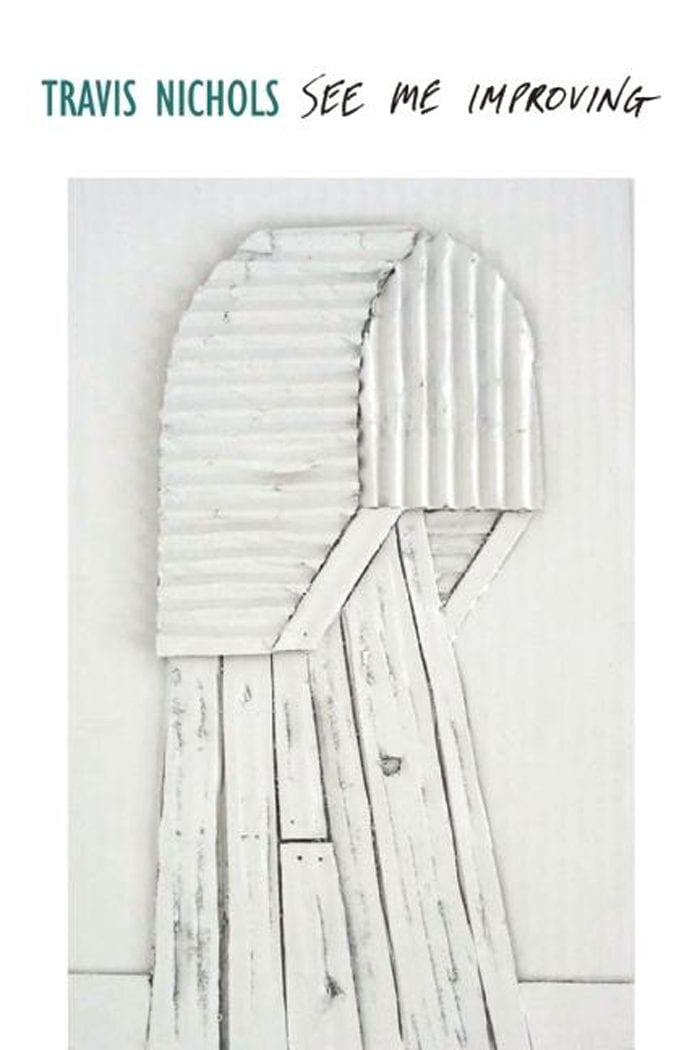
Travis Nichols is a young poet and novelist who invites readers into a world of relationships gone strange. In his poems, everyday human behaviors become fraught with extraordinary significance. It’s a delicate balance of orchestration and improvisation—both dizzying and oddly comforting. The poems, thick with vibrant language and semantic play, hint at a Rimbaudian derangement of the senses while being hyperalert and completely alive.
ISBN: 9781556593123
Format: Paperback
Aim High
Leave home
and hope
home leaves you
for an hour at least.
A pill could make it,
not you, turn black
and die. Right? Take it.
Kiss me on the mouth.
Shut me up.
Reviews
“This hip and funny second collection of poems from Nichols… looks, with a tender heart, mostly at domestic life, occasionally lifting its gaze toward the larger contemporary American scene. Nichols’s speaker is, foremost, humbled by circumstances big and small: ‘All my life I’ve felt destined / not for the greatness of my heroes / but the goodness of their followers.’ He looks with a kind of gentle admiration on most things, from the local Bruegger’s Bagels to the beloved, to whom tribute is paid in the title sequence: ‘I will buy orange roses for you, / and you will buy an orange book for me, / and this evening we will leave them both / in the cold house with the furry cat, / so we can have a code orange night.’ Slight in-jokes like this are sprinkled throughout, though most readers will find these plainspoken, free verse poems friendly and easy to grasp. Fans of poets like Matthew Zapruder will find much to like in this world in which ‘Poetry is an ovary with an eyeball in it.'” —Publishers Weekly
“See Me Improving questions the nature of what it means to get well, to improve. It is not enough for the poet merely to function, to take the world at face value—even if he becomes capable of it. Creativity is messy; or as Nichols writes: ‘The divine is always still and undone / so be still and undo.’ Some humans seem to be equipped to face the world straight up. Others, the poets, are screaming at the divine that we can’t handle what we’ve been given. It hurts; but without the experience of discomfort, there might only be poetry of praise. In reading Nichols’s luminous collection, it seems the divine takes its poetry with an edge.” —The Rumpus
“Nichols pulls the reader in… with breathtaking immediacy.” —Star Tribune
